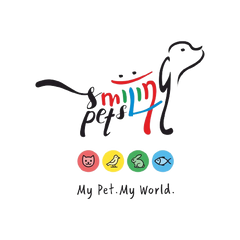Best Dog Food for Small Breeds: A Comprehensive Guide for Optimal Nutrition
Small breed dogs have unique dietary needs that distinguish them from medium or large-sized breeds. Their compact bodies, high energy levels, and specific physiological traits require specialized nutrition to keep them healthy and thriving.
Selecting the best dog food for small breeds means understanding their particular nutritional requirements, choosing high-quality ingredients, and focusing on their overall well-being. This comprehensive guide will help you explore small breed dog food options to make the perfect choice for your furry companion.
Understanding the Unique Dietary Needs of Small Breeds
Small breed dogs, such as Yorkshire Terriers, Maltese, Pugs, and Toy Poodles, are charming and full of energy. However, their smaller size means they require specially formulated food that caters to their unique metabolism and lifestyle. Despite their size, they have higher metabolic rates than larger dogs, which means they burn calories faster and need nutrient-dense food to sustain their energy levels.
- Why High-Calorie Food Matters
Since small breed dogs have smaller stomachs, they can’t consume large portions in one sitting. This makes high-calorie, nutrient-packed food essential. The right balance of proteins, fats, and carbohydrates ensures they get the energy they need without overburdening their digestive systems.
- How Kibble Size Impacts Feeding
The size and texture of kibble are particularly important for small breeds. Their tiny jaws and teeth require smaller, softer kibble that’s easy to chew and digest. Larger kibble can be challenging and may deter them from eating enough to meet their nutritional needs.
Special Health Considerations for Small Breeds That Influence Food Choices

Small breeds are susceptible to specific health concerns that should influence the type of food you choose for them. Feeding the right diet can help prevent or manage these issues, ensuring your dog lives a long, healthy life.
- Managing Hypoglycemia
Because of their fast metabolism, small breeds can be prone to hypoglycemia (low blood sugar), especially if they skip meals or don’t eat enough. Feeding them small, frequent meals with balanced carbohydrates and proteins can stabilize their blood sugar levels and keep them energetic throughout the day.
- Supporting Dental Health
Small breeds often face dental challenges, such as plaque buildup and gum disease. Dry kibble with a texture designed to reduce tartar can contribute to better oral health. Additionally, providing appropriate chew toys or dental treats can further support their teeth and gums.
- Maintaining Joint Health
Although small breeds aren’t carrying as much weight as larger breeds, some are prone to joint problems, particularly breeds like Dachshunds. Including food enriched with glucosamine, chondroitin, and omega-3 fatty acids can support joint health and mobility over time.
Key Features to Look for in Dog Food Tailored to Small Breeds
When selecting dog food for your small breed companion, it’s essential to look beyond flashy packaging and focus on the nutritional content and quality of the ingredients.
- High-Quality Protein Sources
Protein is the cornerstone of any dog’s diet, and for small breeds, it should come from premium sources like chicken, turkey, fish, or lamb. These proteins are essential for muscle maintenance, energy, and overall health. Foods that list real meat as the first ingredient are typically a good choice.
- Healthy Fats for Energy and Coat Health
Fats are an excellent energy source and contribute to a shiny, healthy coat. Look for ingredients like fish oil, chicken fat, and flaxseed, which are rich in omega-3 and omega-6 fatty acids. These also support skin health, reducing itchiness and dryness.
- Digestible Carbohydrates and Fiber
Easily digestible carbohydrates like brown rice, oatmeal, and sweet potatoes provide sustained energy for small breeds. Additionally, fiber from fruits and vegetables can support healthy digestion, reducing the risk of constipation or upset stomachs.
- Enriched with Vitamins and Minerals
Small breeds benefit from food fortified with antioxidants, vitamins, and minerals. These nutrients boost their immune systems and protect them from common illnesses. Ingredients like blueberries, spinach, and carrots are often included for their antioxidant properties.
Top Recommendations for the Best Small Breed Dog Foods
- Blue Buffalo Life Protection Formula Small Breed
This popular option features real deboned chicken as the primary protein source, ensuring high-quality nutrition. The formula is enriched with brown rice, vegetables, and Blue Buffalo’s LifeSource Bits, which provide a blend of antioxidants, vitamins, and minerals. Its small kibble size makes it perfect for little mouths, and it supports immune system health and coat shine.
- Hill’s Science Diet Small Paws Adult Dog Food
Designed specifically for small breeds, this food combines high-quality protein from chicken and barley with carefully calibrated nutrients to support heart health and energy levels. The kibble is small and easy to chew, and the recipe includes omega-6 fatty acids for soft skin and a shiny coat.
- Royal Canin Small Breed Adult Formula
Known for its breed-specific and size-specific recipes, Royal Canin’s small breed formula offers a tailored approach to nutrition. Its calorie-dense formula meets the high energy needs of active small dogs, while the kibble is designed to promote better dental health by reducing tartar buildup.
Tips for Feeding Small Breeds for Long-Term Health
Proper feeding practices are just as important as selecting the right food. Small breeds thrive when their dietary habits are well-managed.
- Feed Small, Frequent Meals
Small breeds do better with three to four small meals spread throughout the day rather than one or two large ones. This helps maintain their energy levels and prevents hypoglycemia, ensuring they stay active and alert.
- Monitor Portion Sizes
While small breeds have high energy needs, overfeeding can quickly lead to obesity due to their size. Use the feeding guidelines provided on the food packaging and adjust portions based on your dog’s activity level and weight.
- Transition to New Foods Gradually
If you’re switching to a new brand or type of food, make the change gradually over 7–10 days. Start by mixing a small amount of the new food with their current food, increasing the ratio of the new food each day.
- Provide Fresh Water
Small breeds can be prone to dehydration, especially when eating dry kibble. Always ensure your dog has access to clean, fresh water to keep them hydrated and healthy.
Final Thoughts on Choosing the Best Food for Small Breeds
In conclusion, selecting the best food for small breeds is not just about ensuring they enjoy their meals but also about supporting their overall health and well-being. Small dogs have unique nutritional requirements, including higher energy needs and smaller kibble sizes tailored for their tiny mouths.
By choosing a high-quality, nutrient-rich diet, you can provide your furry friend with the fuel they need to thrive. Always consider your dog’s specific needs, such as age, activity level, and health conditions, and consult your veterinarian for personalized recommendations. With the right food, your small breed companion will enjoy a happy, healthy, and active life by your side.




